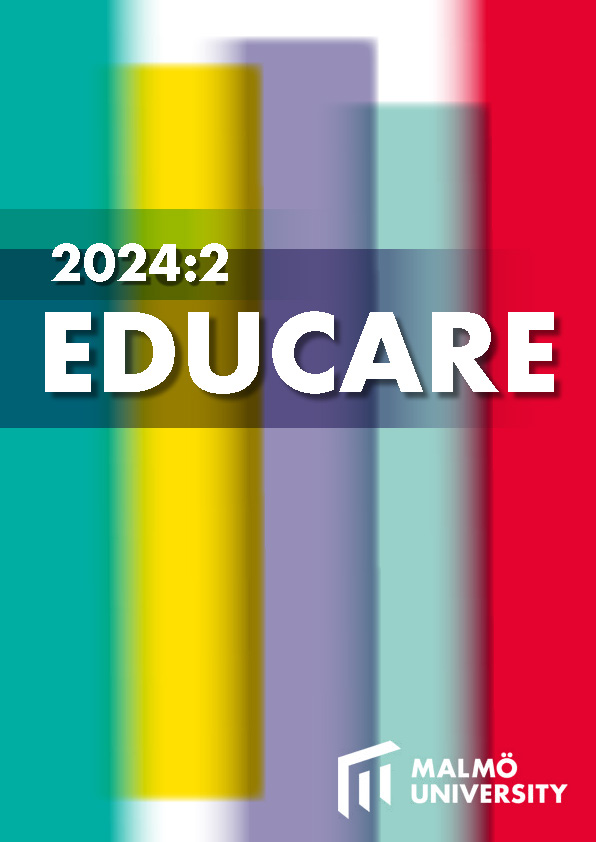“Game face on” when doing “good enough” teaching
Manifestations of professional agency in teacher educators’ perceptions of a transition to remote work
DOI:
https://doi.org/10.24834/educare.2024.2.1081Keywords:
professional agency, professional development, professional identity, subject-centered sociocultural approach (SCSC), teacher educatorAbstract
This study aims to investigate manifestations of professional agency in teacher educators’ (TEds) perceptions during the period of higher education transitioning to emergency remote work. This analysis applies the subject-centered sociocultural (SCSC) approach to professional agency. In this approach, agency is understood as exercised and the social context (the sociocultural conditions) as well as the individual’s agency (professional subjects) are mutually constitutive but analytically separate. Fourteen semi-structured interviews with Swedish teacher educators working at five different universities were analyzed using directed content analysis. The analysis shows that in an acute transition, the TEds exercised agency when trying to frame a blurred context, a connected space, and a screen identity. This is an agency exercised for many purposes, from retaining professional pride to transforming the teaching practice, involved coping with the “good enough” discourse, shaping the professional appearance, but foremost for the individual’s well-being and doing this in a social context containing e.g., expectations of availability and feelings of being in control. The results of the study can contribute to our understanding of university educators’ and teacher educators’ professional agency amid transitions to new, remote forms of hybrid work arrangements.
Downloads
Published
How to Cite
Issue
Section
License
Copyright (c) 2024 The Authors

This work is licensed under a Creative Commons Attribution-NonCommercial 4.0 International License.



